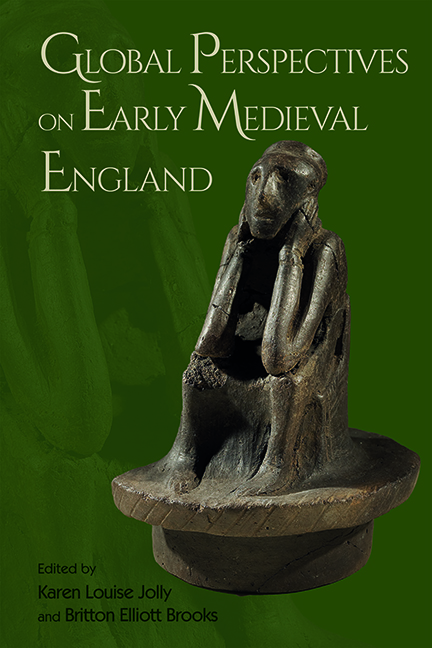Chapter 7 - Reassessing Anglo-Saxon Origins from a Eurasian Perspective
Published online by Cambridge University Press: 26 May 2022
Summary
ON WHAT assumptions are modern conceptions of the Anglo-Saxon origins of the English people based? How, in recent years, have those assumptions been challenged? And what shifts of perspective can be expected in the future?
The present paper offers a preliminary response to these questions while directing attention to one major shift that can be anticipated in the years ahead. This has to do with widening the field of vision so that relevant developments within a broad expanse of Eurasia are taken into account, and not just those phenomena that fall within the segment of that landmass that, with some terminological audacity, we call the continent of Europe.
Of course, Europe is no such thing as a continent, at least when one looks at the more northerly latitudes of the northern hemisphere. I have been told, though I have yet to try the experience, that one can cycle from Belgium or Jutland to Poland, from Poland to Ukraine, and from Ukraine to the shores of the Caspian Sea without the necessity of changing gears. Regardless of the validity of that claim, there are grounds for thinking that travel, with a corresponding interchange of goods, ideas, and cultural practices, has in fact been occurring for thousands of years along these northern corridors; doing so during the earlier centuries of the first millennium ad in a manner that ought to have an impact on our use of the terms ‘Germanic’ or ‘Anglo-Saxon’ when discussing the origins of the English.
During the nineteenth century, when Anglo-Saxon studies were being consolidated into a single discipline out of a miscellany of antiquarian and philological pursuits, the remarkable changes that were perceived to have taken place in Britain after the collapse of Roman rule – that is, during the fourth to seventh centuries ad – were subsumed into a discourse inflected by the pan-Germanic ideology espoused by John Mitchell Kemble (1807–57) and other leading intellectuals of his day. Anglo-Saxon England, now named as such, came to be conceptualized chiefly in terms of the Germanizing of the Roman world through invasion from across the North Sea, in a process that was thought to have strengthened the sinews of the incipient English nation.
- Type
- Chapter
- Information
- Global Perspectives on Early Medieval England , pp. 139 - 170Publisher: Boydell & BrewerPrint publication year: 2022

